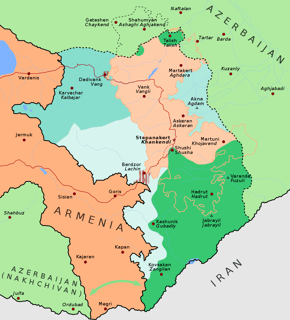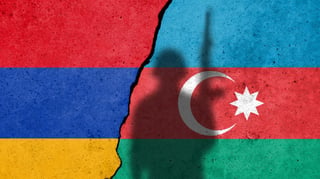The Zangezur corridor (Armenian: Զանգեզուրի միջանցք, romanized: Zangezuri mijantsk; Azerbaijani: Zəngəzur dəhlizi) is a concept for a transport corridor which, if implemented, would give Azerbaijan unimpeded access to Nakhchivan Autonomous Republic without Armenian checkpoints via Armenia's Syunik Province and, in a broad sense, for the geopolitical corridor that would connect Turkey to the rest of the Turkic world thereby "uniting it". The concept has been increasingly promoted by Azerbaijan and Turkey since the end of the Second Nagorno-Karabakh War, while Armenia has steadily objected to it, asserting that "corridor logic" deviates from the ceasefire statement trilaterally signed at the end of that war, and that it is a form of propaganda. The terminology, the potential routes, and the modes of transport connections have since been points of contention between Azerbaijan and Armenia, which are still maintaining a mutual blockade since 1989. Azerbaijan has initiated construction projects on its territory presenting them as part of the implementation of a so-called "Zangezur corridor" and threatened that should Armenia not want it, Azerbaijan "will decide it by force". During 2021 trilateral talks, Armenia expressed willingness to participate in rebuilding the Soviet-era railway links historically connecting Azerbaijan and Nakhichevan, which Azerbaijan interpreted as Armenian consent to the "Zangezur corridor". According to Russia, the third party, what is being discussed is unblocking regional communications, and not creating a "corridor". Various observers have commented on the "Zangezur corridor", analysing the political implications of the term's usage, and the effects of it if implemented, some characterising the concept as a pan-Turkist agenda, drawing from irredentism, and others emphasising the solution to the blockade as a key aspect. From Wikipedia



